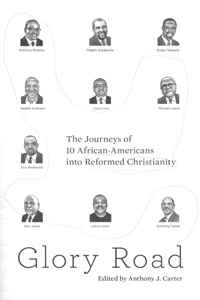
One of the main things that has driven our ministry at CEP over the years and continues to motivate my own personal ministry is the need for Christians to understand the kingdom world and life view as we call it. We have recommended, during that time, some excellent books on worldview. Our aim has always been to help Christians develop a Christian mind that knows how to understand the importance of worldviews and their impact on the lives of those holding them.
Many of those outstanding books have taken a more philosophical or apologetic approach for example: Christianity’s worldview or Islam’s world view, or the secularist worldview. They are crucial in our spiritual development of thinking with a transformed mind. With those types of world view it is easy to say as a Christian I am not influenced by Islam or the New Age or the secular worldview. But what this book represents are those “hidden worldviews” that impact our lifestyle as Christians almost unaware. I would say there are two levels of worldviews, the one being the philosophies and religion category, but the other refers to those hidden worldviews that impact our everyday lives, even as Christians.
Sanford and Wilkens have identified eight more culturally oriented worldviews that subtly work their way into a Christian’s mind and heart thus impacting their daily lives and often without ever giving them a second thought. Things like: individualism or consumerism, or moral relativism, or postmodern tribalism, as it is called. These hidden worldviews have the power to knock us off course in our Christian life and actually cause us to betray who we say we are and what we are supposed to stand for. The authors clearly describe their book by saying that it is an apologetic approach with a different twist. “Too often we assume that non-Christian worldviews stay safely on the other side of the church door. As you will see in this book, we believe that this is far from the case.”
If we could get Christians to self consciously realize that how they dress, what we buy, choices we make, and the whole cultural maze stuff that becomes part of our lives happens because we do not embrace or practice a consistently Christian worldview; hence we are no different from the world around us, often even in things like our worship style. The authors point out, and rightly so, because most of the worldviews identified in this book are not the more intellectual ones, they often fly below the radar screen and “they find their way behind the church doors, mixed in with Christian ideas and sometimes identified as Christian positions.” They are real competitors with Christianity and they stake their claim on the lives of Christians and nonbelievers alike.” page 13.
I also found the book to be “fair and balanced” in that it not only identifies the dangers of these worldviews but highlights some positives from them as well, which we need to hear. The chapter on postmodern tribalism is a chapter that every leader in the PCA should read carefully and discuss with other leaders.
I very much appreciate their development of the Christian worldview in chapter 10. If I were arranging the book I might have started with that as our base; nevertheless, it is a most helpful presentation in identifying that worldview.
I have recommended it for Sunday school adult electives, or small group study and discussion, as well and one’s on personal reading and study. I would definitely include this in my list of my top ten books on worldview.

